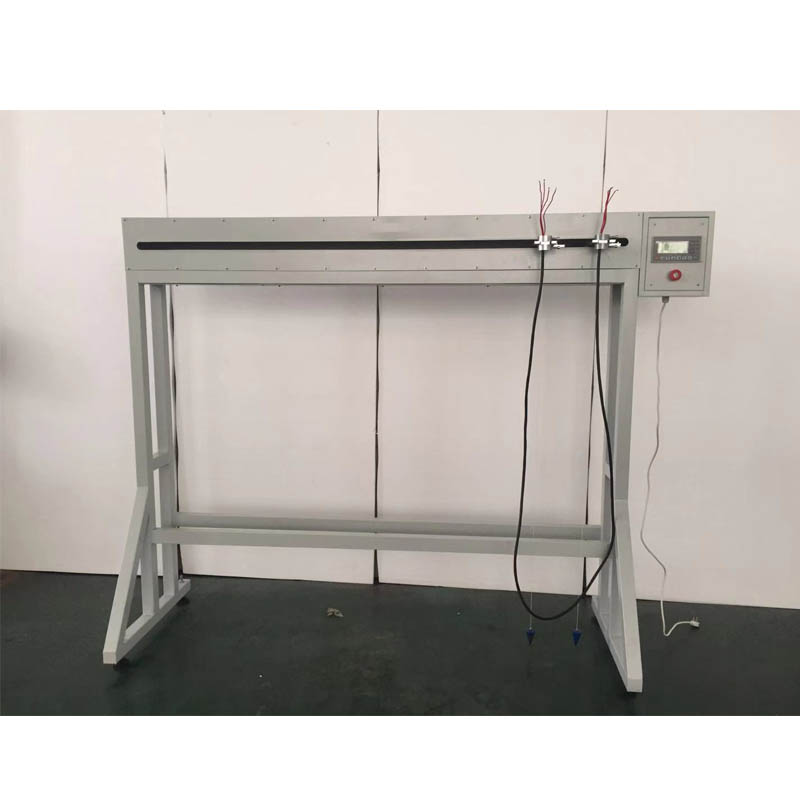tensile strength testing equipment manufacturer
Understanding Tensile Strength Testing Equipment Manufacturers
Tensile strength testing is a crucial aspect of materials science, particularly in industries such as construction, manufacturing, and materials development. This process involves measuring the force required to pull something, such as a rope, wire, or structural component, to the point of failure. The importance of tensile strength testing is underscored by its applications in ensuring the reliability and safety of materials used in various products. To achieve accurate and reliable results, high-quality tensile strength testing equipment is essential. This article explores the role of manufacturers in this field, their innovations, and how they contribute to advancements in material testing.
The Role of Manufacturers
Tensile strength testing equipment manufacturers play a vital role in producing devices that accurately measure the tensile strength of materials. These manufacturers design and produce various testing machines, including universal testing machines (UTMs), which are commonly used for tensile, compression, and bend testing. Other specialized equipment, such as microtensile testing systems, are designed to evaluate the properties of small samples. Manufacturers also focus on creating accessories that enhance the functionality and accuracy of these machines, such as grips, extensometers, and data acquisition systems.
Innovations in Equipment Design
One of the most significant contributions from tensile strength testing equipment manufacturers is the integration of advanced technology into their products. Many modern machines utilize digital controls, computer software, and automated data logging to streamline the testing process. This automation not only improves accuracy but also increases throughput by reducing the amount of manual intervention required.
Another notable innovation is the development of software algorithms for precise data analysis. These software solutions assist engineers and researchers in interpreting the results of tensile tests, making it easier to predict material behavior under various conditions. Moreover, advancements in materials science have led to the creation of testing equipment that can accommodate a wider range of materials, from metals to polymers and composites.
tensile strength testing equipment manufacturer

Meeting Industry Standards
Manufacturers of tensile strength testing equipment must adhere to strict industry standards and regulations to ensure their products are reliable and safe to use. Organizations such as ASTM International and ISO develop standards that govern the testing process, including the specifications for equipment calibration, testing procedures, and reporting results. Equipment manufacturers are responsible for ensuring their machines comply with these standards, which is essential for maintaining credibility and acceptance in the scientific community.
Importance of Calibration and Maintenance
Proper calibration and regular maintenance of tensile strength testing equipment are critical for obtaining accurate results. Manufacturers often offer calibration services as part of their product offerings. This ensures that the testing machines deliver precise measurements, which are essential for quality control in manufacturing processes. Additionally, many manufacturers provide training and technical support to help their clients maintain their equipment effectively.
The Future of Tensile Strength Testing
As industries evolve and materials continue to improve, the demand for advanced tensile strength testing equipment will only increase. Manufacturers are likely to focus on developing machines that can handle more complex materials and testing scenarios, such as those experienced in additive manufacturing and nanotechnology. The integration of smart technology, including the Internet of Things (IoT), will also facilitate remote monitoring and maintenance, thereby increasing efficiency and reducing downtime.
In conclusion, tensile strength testing equipment manufacturers play a pivotal role in the material testing landscape. Their innovations, commitment to quality, and adherence to industry standards contribute significantly to the assurance of material reliability and safety. As technology continues to advance, these manufacturers will be at the forefront, driving further developments in the field of materials science and engineering. Investing in high-quality tensile strength testing equipment is not just a choice—it's a necessity for industries that prioritize quality and safety in their materials.
-
Why the Conductor Resistance Constant Temperature Measurement Machine Redefines Precision
NewsJun.20,2025
-
Reliable Testing Starts Here: Why the High Insulation Resistance Measuring Instrument Is a Must-Have
NewsJun.20,2025
-
Flexible Cable Flexing Test Equipment: The Precision Standard for Cable Durability and Performance Testing
NewsJun.20,2025
-
Digital Measurement Projector: Precision Visualization for Modern Manufacturing
NewsJun.20,2025
-
Computer Control Electronic Tensile Tester: Precision and Power for the Modern Metal Industry
NewsJun.20,2025
-
Cable Spark Tester: Your Ultimate Insulation Assurance for Wire and Cable Testing
NewsJun.20,2025
 Copyright © 2025 Hebei Fangyuan Instrument & Equipment Co.,Ltd. All Rights Reserved. Sitemap | Privacy Policy
Copyright © 2025 Hebei Fangyuan Instrument & Equipment Co.,Ltd. All Rights Reserved. Sitemap | Privacy Policy
